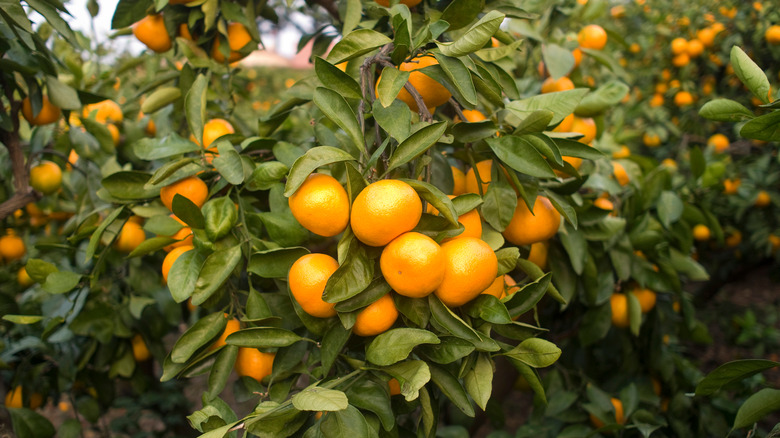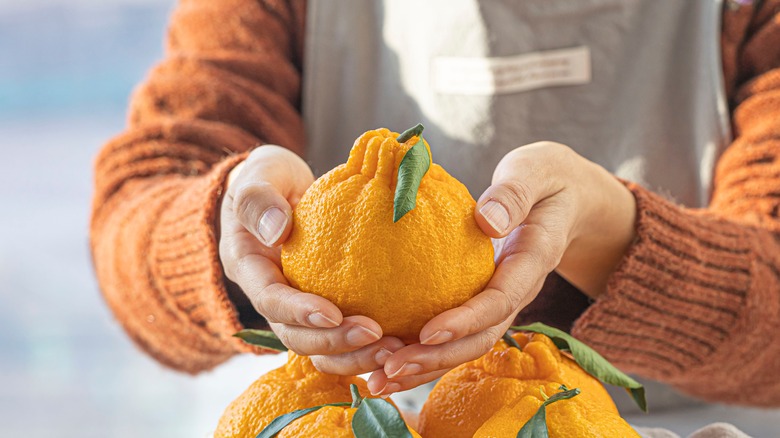The Reason Tangerines Are Significant In Korean Cuisine
Tangerines have a long-standing history in South Korea, stretching all the way back to when the country was split into small kingdoms. They were regularly presented to Korean royalty, used in herbal medicine, religious traditions, and as gifts of honor. Today, Koreans eat twice as many tangerines as they do apples, and Jeju Island — famous for its tangerine trees — makes tangerine tea, tiramisu, and even a Soba Noodle dish with these oranges (via BlueBasket).
Jeju is a small volcanic island off the southern coast of South Korea. It has a tropical climate and is extremely popular for tourists to visit due to its beautiful scenery. According to The Korea Herald, Jeju produces 500,000 tons of tangerines a year! That makes up 95% of all the tangerines Koreans consume, so people very rarely go looking for a citrus fix elsewhere.
Jeju has been growing citrus fruit since 1052 A.D. due to the island's tropical climate and volcanic soil, which is rich with the nutrients the tangerines need to thrive. The little orange fruit is highly delicious and has a lot of historical symbolism under its skin, but does it go deeper than that?
Bone deep
You know how Americans have the saying, "An apple a day keeps the doctor away." Well, that's what tangerines are for Koreans. According to The Jeju Weekly, Jeju tangerines have been used for medicines since the 17th century and on. Records from over 300 years ago attest that Koreans used tangerines to treat coughs, scurvy, and colds. The tangerine peel and its seeds were also used for medicinal purposes.
Although this is ancient knowledge, modern testing does prove that tangerines have high levels of vitamin C (via Healthline). The Mayo Clinic lists vitamin C as vital and has proven to aid the healing process and prevent cancer, colds, and eye diseases, so eating tangerines every day helps prevent these ailments. The ancestral healers and medical professionals of the time knew what they were doing.
Tangerines are fantastic for your overall health and well-being. And even though Jeju's fruit trees ripen in the summer, Koreans traditionally eat more tangerines in the winter to keep themselves from becoming vitamin deficient and stay healthy against winter's chill. Tangerines are an intrinsic part of Korean culture and cuisine, both historically, medically, and, of course, because those citrus fruits taste so delicious! So if you ever plan on visiting the country, stop on Jeju Island and spend a day among the tangerine groves.

